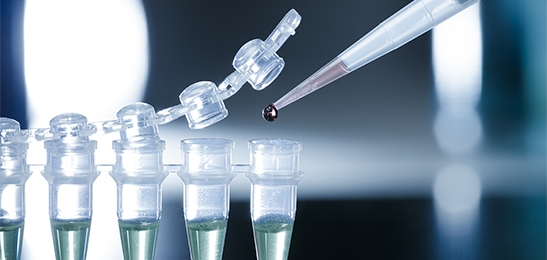Enhancing Wellness with Vitamins Quantitative Analysis

Vitamins are essential nutrients that play a crucial role in maintaining overall health and well-being. They are organic compounds that our bodies require in small amounts to perform various physiological functions. Given their importance, it is imperative to accurately measure vitamin levels in food, supplements, and biological samples. This is where vitamins quantitative analysis comes into play.
What is Vitamins Quantitative Analysis?
Vitamins quantitative analysis is a scientific process that involves measuring the precise concentration of vitamins in various samples, including food products, dietary supplements, and biological fluids such as blood and urine. This analysis is essential for several reasons:
- Nutritional Quality: Assessing the vitamin content in food and supplements helps ensure that they meet nutritional standards and provide the intended health benefits.
- Health Monitoring: Measuring vitamin levels in biological samples can help healthcare professionals diagnose vitamin deficiencies or excesses, allowing for timely intervention.
- Research and Development: In the food and pharmaceutical industries, understanding vitamin concentrations aids in product formulation, quality control, and regulatory compliance.
Methods of Vitamins Quantitative Analysis
Several techniques are employed for the quantitative analysis of vitamins, each with its own advantages and limitations. Here are some common methods:
- High-Performance Liquid Chromatography (HPLC): HPLC is one of the most widely used methods for vitamin analysis. This technique separates, identifies, and quantifies each vitamin in a sample with high accuracy. It is particularly effective for water-soluble vitamins, such as B-complex vitamins and vitamin C.
- Gas Chromatography (GC): This method is used primarily for fat-soluble vitamins like vitamins A, D, E, and K. GC involves vaporizing the sample and passing it through a column to separate the compounds based on their volatility.
- Mass Spectrometry (MS): Often combined with chromatography techniques, mass spectrometry provides highly sensitive and specific detection of vitamins. This technique enables the identification of vitamin metabolites and helps in understanding metabolic pathways.
- Enzyme-Linked Immunosorbent Assay (ELISA): ELISA is a sensitive technique used for quantifying specific vitamins, particularly when only small sample volumes are available. It relies on antigen-antibody interactions to provide accurate results.
Importance of Vitamins Quantitative Analysis
The significance of vitamins quantitative analysis cannot be overstated. Here are a few key benefits:
- Preventing Deficiencies: With rising awareness of diet-related health issues, regular monitoring of vitamin levels can help prevent deficiencies that could lead to serious health complications such as anemia (often linked to vitamin B12 deficiency) or scurvy (associated with vitamin C deficiency).
- Tailored Nutrition: Understanding individual vitamin levels allows for tailored dietary recommendations and supplementation, promoting optimal health according to personal needs and lifestyles.
- Regulatory Compliance: For manufacturers, ensuring that vitamin content in products complies with regulations is crucial for consumer safety and maintaining market access. Accurate analysis helps in meeting labeling and health claim standards.
Challenges in Vitamins Quantitative Analysis
Despite its importance, vitamins quantitative analysis presents several challenges. For instance, the stability of vitamins during sample preparation and storage can significantly affect results. Furthermore, the presence of interfering substances in samples can complicate the analysis and lead to inaccurate readings. Therefore, choosing the appropriate analytical method and protocols is critical to achieving reliable outcomes.
Conclusion
Vitamins quantitative analysis is an indispensable aspect of nutrition science and health care. By accurately measuring vitamin levels, we can enhance food quality, monitor health statuses, and foster better public health outcomes. In the ever-evolving landscape of nutrition and health, maintaining an understanding of vitamins and their complex roles is vital for both individuals and professionals in the health industry. As the body of research in this field expands, the importance of precise quantitative analysis will continue to grow, helping us navigate our health toward a brighter future.
- Questions and Answers
- Opinion
- Motivational and Inspiring Story
- Technology
- Live and Let live
- Focus
- Geopolitics
- Military-Arms/Equipment
- الحماية
- Economy
- Beasts of Nations
- Machine Tools-The “Mother Industry”
- Art
- Causes
- Crafts
- Dance
- Drinks
- Film/Movie
- Fitness
- Food
- الألعاب
- Gardening
- Health
- الرئيسية
- Literature
- Music
- Networking
- أخرى
- Party
- Religion
- Shopping
- Sports
- Theater
- Health and Wellness
- News
- Culture

